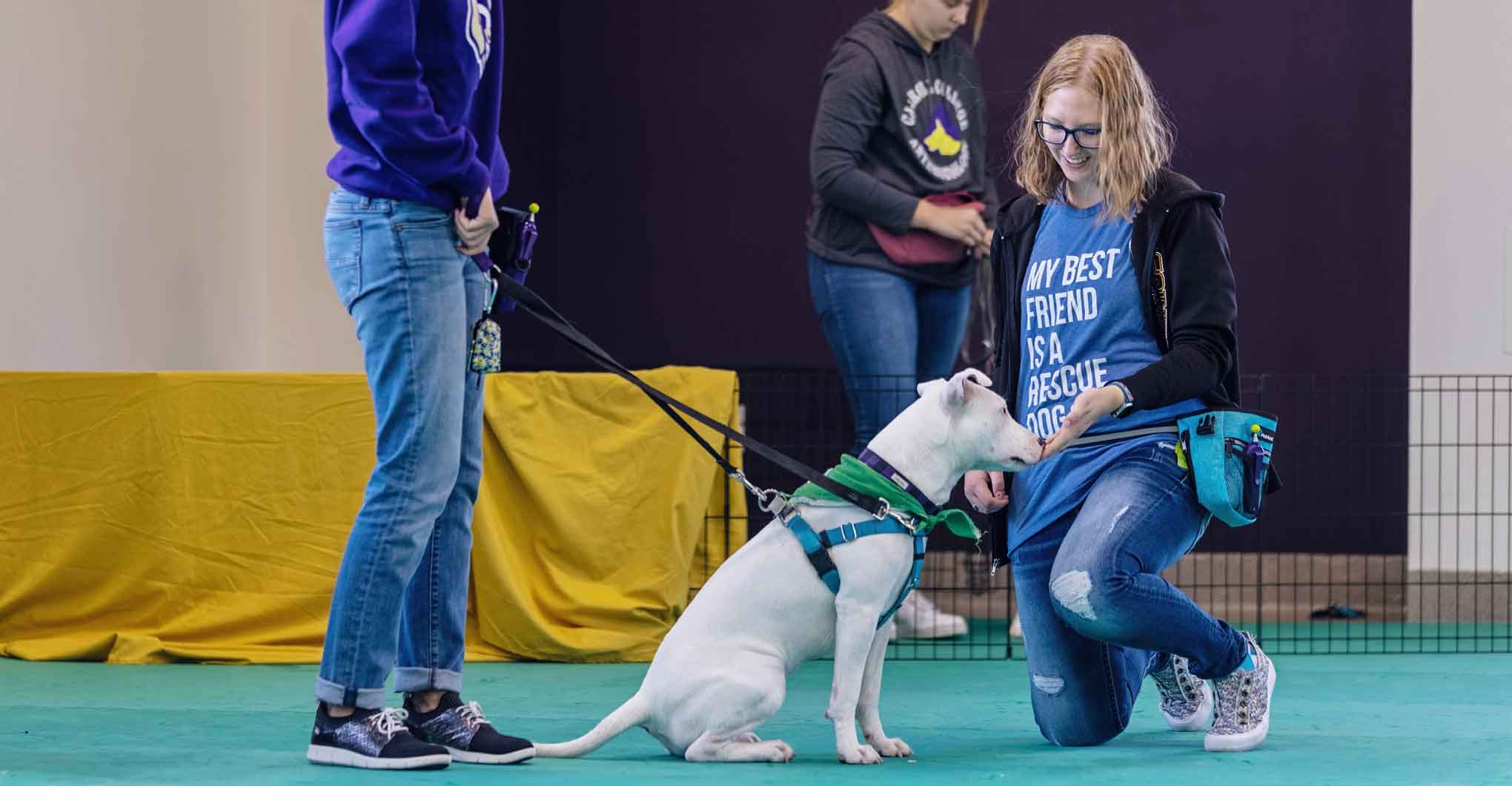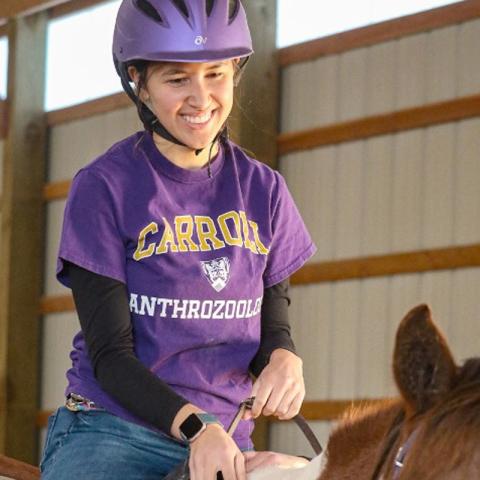Explore how animals intersect with human culture
As a student in the anthrozoology program, you’ll explore human-animal interactions through a variety of disciplines, including psychology, sociology, anthropology, theology, and geography. You’ll develop the knowledge and skills to improve the lives of both animals and people through animal-assisted therapy, veterinary medicine, humane education, and other service occupations.
The program blends a core liberal arts education, specialized coursework, and classroom theory with extensive hands-on training, where you’ll work with horses, dogs, cats, and even wildlife.



